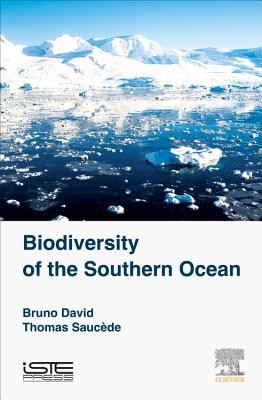
- We will send in 10–14 business days.
- Author: David Bruno
- Publisher: ISTE Press - Elsevier
- Year: 2015
- Pages: 130
- ISBN-10: 1785480472
- ISBN-13: 9781785480478
- Format: 15 x 23.1 x 1 cm, kieti viršeliai
- Language: English
- SAVE -10% with code: EXTRA
Reviews
Description
The Southern Ocean surrounding the Antarctic continent is vast, in particular, its history, its isolation, and climate, making it a unique "laboratory case" for experimental evolution, adaptation and ecology. Its evolutionary history of adaptation provide a wealth of information on the functioning of the biosphere and its potential.
The Southern Ocean is the result of a history of nearly 40 million years marked by the opening of the Straits south of Australia and South America and intense cooling. The violence of its weather, its very low temperatures, the formation of huge ice-covered areas, as its isolation makes the Southern Ocean a world apart.
This book discusses the consequences for the evolution, ecology and biodiversity of the region, including endemism, slowed metabolism, longevity, gigantism, and its larval stages; features which make this vast ocean a "natural laboratory" for exploring the ecological adaptive processes, scalable to work in extreme environmental conditions. Today, biodiversity of the Southern Ocean is facing global change, particularly in regional warming and acidification of water bodies. Unable to migrate further south, how will she cope, if any, to visitors from the North?
EXTRA 10 % discount with code: EXTRA
The promotion ends in 23d.17:11:28
The discount code is valid when purchasing from 10 €. Discounts do not stack.
- Author: David Bruno
- Publisher: ISTE Press - Elsevier
- Year: 2015
- Pages: 130
- ISBN-10: 1785480472
- ISBN-13: 9781785480478
- Format: 15 x 23.1 x 1 cm, kieti viršeliai
- Language: English English
The Southern Ocean surrounding the Antarctic continent is vast, in particular, its history, its isolation, and climate, making it a unique "laboratory case" for experimental evolution, adaptation and ecology. Its evolutionary history of adaptation provide a wealth of information on the functioning of the biosphere and its potential.
The Southern Ocean is the result of a history of nearly 40 million years marked by the opening of the Straits south of Australia and South America and intense cooling. The violence of its weather, its very low temperatures, the formation of huge ice-covered areas, as its isolation makes the Southern Ocean a world apart.
This book discusses the consequences for the evolution, ecology and biodiversity of the region, including endemism, slowed metabolism, longevity, gigantism, and its larval stages; features which make this vast ocean a "natural laboratory" for exploring the ecological adaptive processes, scalable to work in extreme environmental conditions. Today, biodiversity of the Southern Ocean is facing global change, particularly in regional warming and acidification of water bodies. Unable to migrate further south, how will she cope, if any, to visitors from the North?


Reviews